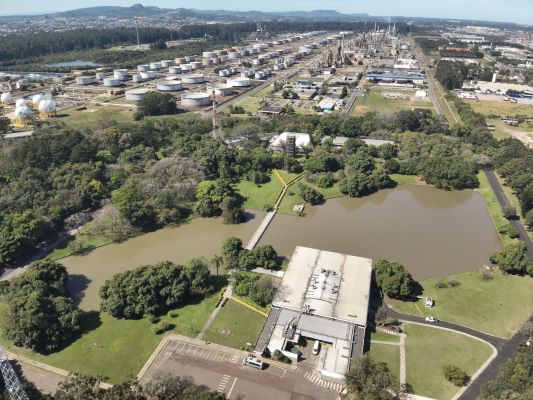Services are expected to end in August with the mobilization of 2,900 workers

Refap shutdown has an investment of R$557 million and will mobilize 2,900 workers. Credit: Gustavo Etcheverry
Petrobras will begin a maintenance shutdown at the Alberto Pasqualini Refinery, Refap, located in Canoas (RS) next Sunday, May 18. The company will invest approximately R$557 million to preserve the integrity of the equipment and the safety of personnel, increase efficiency and profitability in the production process, and implement projects. The scheduled services are expected to last until early August and should involve approximately 2,900 workers at the peak of activities.
“The availability of local labor is a challenge recognized by Petrobras, which promotes actions to qualify workers in the region. For this shutdown, Refap sought, together with the Canoas Opportunities Bank and the Sine (National Employment System) of Canoas and Esteio, to maximize the hiring of local people, generating employment and income in the region of operation and contributing to the performance of Petrobras' social role,” explains Refap's general manager, Marcus Aurelius Valenti.
“The main scope of the work consists of opening the equipment, internal inspections, integrity assessment and repairs, ensuring another operational campaign of at least six years for the units involved,” explains Valenti.
The scheduled maintenance shutdown will not affect supply to the market. “Refap and Petrobras are making detailed plans to ensure that prior stocks are maintained. During the period in which part of the production will be reduced, the company will work in an integrated manner with the commercial and logistics areas, internalizing derivatives from other regions, enabling us to serve our customers,” says the general manager.
Refap has the capacity to process 32,000 cubic meters of oil per day. Its main products are diesel, gasoline, LPG, petrochemical naphtha, fuel oil, jet fuel, asphalt, coke, sulfur and propylene.
The Alberto Pasqualini Refinery serves almost the entire market in Rio Grande do Sul, part of Santa Catarina and Paraná, as well as other states by cabotage.
Subscribe to our newsletter & stay updated.